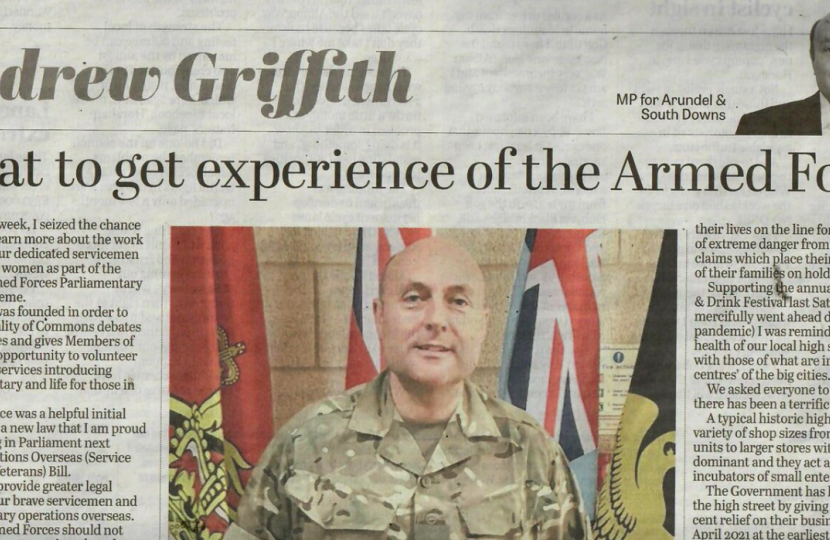
Last week, I seized the chance to learn more about the work of our dedicated servicemen and -women as part of the Armed Forces Parliamentary Scheme. The scheme was founded in order to improve the quality of Commons debates on defence issues, and gives MPs the opportunity to volunteer with one of the services – I chose the RAF - introducing them to the military and its work at the Defence Academy, Shrivenham.
This experience was a helpful initial insight into a new law that Parliament will be considering next week, the Operations Overseas (Service Personnel and Veterans) Bill. This important bill seeks to provide greater legal protections to our brave servicemen and women on military operations overseas.
While our Armed Forces are rightly not immune from prosecution for real offences committed on operations, there has been an increasing tension where ambulance-chasing lawyers have dishonestly pursued vexatious claims against innocent veterans. For example, the Al-Sweady Inquiry launched in 2009 found that the vast majority of allegations brought against British personnel in Iraq were found to be wholly without merit. This resulted in the solicitor Phil Shiner, who had personally brought hundreds of claims against our soldiers, being struck off for professional misconduct. A similar investigation into allegations from Afghanistan – Operation Northmoor - found in 2014 that over 90% of cases were discontinued as being without foundation, and ultimately by 2019 not a single investigated case was referred for prosecution.
While it is important that we abide by our international and domestic legal obligations, it is also right that we protect our serving personnel and veterans from these vexatious claims and stop these ‘lawfare’ cases from undermining our Armed Forces.
Separately, I have continued to be impressed by the ability of firms and workers to adapt in the face of this year’s challenges, with businesses in particular demonstrating their resilience during the pandemic. After the psychological ‘wobble’ of consumers panic buying, private sector food supply chains have been remarkable for quietly and capably getting on with their important job of feeding the nation. Many other businesses have re-purposed or reinvented their operating models and got back to work – again without fuss or headlines. Whilst the state and voluntary sectors have a vital role to play in society, we forget at our peril it is only businesses that create jobs, investment and tax revenues at a scale to help the country recover.
I am still celebrating local ‘Covid Community Champions’. Nominations are still open for any person or group – businesses, postmen, community volunteers, publicans or shopworkers - who has gone the extra mile to help their community. To nominate deserving efforts please contact me at [email protected]
